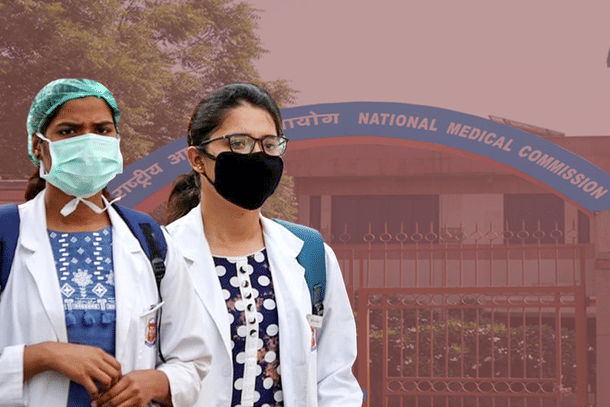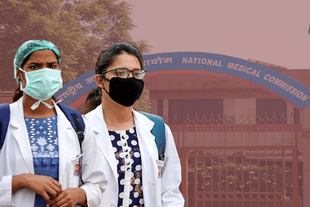News Brief
NMC Revamps MBBS Curriculum: Time Limit, Fewer Papers, Compulsory Attendance And Family Outreach
Swarajya News Staff
Jun 22, 2023, 01:30 PM | Updated 01:29 PM IST
Save & read from anywhere!
Bookmark stories for easy access on any device or the Swarajya app.


The National Medical Commission (NMC) has introduced changes to the undergraduate medical curriculum, including a time limit of 9 years to complete the MBBS course, a fixed number of attempts to clear failed papers, compulsory attendance for both theory and practical papers, and a family outreach programme.
The first year MBBS classes are also likely to commence on 1 August every year.
Further, students will now be required to take fewer papers in certain subjects, such as biochemistry and microbiology. Reacting to the changes, senior doctors expressed fear that medical education is growing in its dependency on coaching institutes while medical students feel the changes are welcome.
According to senior doctors, the overhaul may be well meaning but the real impact would be seen on the ground.
“I have worked in four medical institutes in Delhi, and I would say that a lot of MBBS students are sitting in coaching institutes. So, while the latest overhaul is well meaning, the real impact must be ascertained on the ground," a senior doctor and teacher in Delhi was quoted by The Hindu as saying
However, students have welcomed the change and believe that the arrangement of having the highest number of subjects and toughest subjects in the final year is well thought out.
"So in that sense, this move will really help the students," Dr Swapnil Vasani, a recent MBBS graduate from Narendra Modi Medical College, Ahmedabad, was quoted as saying by The Hindu.
The latest format divides the four-and-a-half-year MBBS course into three phases. The first and second phases are 12 months each, and the third phase is of 30 months, with part I of it being 12 months and part II being 18 months.
Each academic year must have at least 39 teaching weeks, with a minimum of eight hours of study per day and a total of 15 hours per week of clinical posting required from the second year onwards.
To be eligible to appear for the examinations in a subject, a minimum of 75 per cent attendance in theory and 80 per cent in practical or clinical is mandatory.
If students fail in university examinations at the end of each professional year, they will appear in supplementary exams.
The council has specified the time that can be taken for clearing supplementary papers at various stages.
Supplementary exam results will be processed within three to six weeks from the date of declaration of the results of the main examination for every professional year, so that the candidates who pass can join the main batch for progression.
The government also plans to conduct the National Exit Test (NExT) in December-January for medical graduates in the the subjects of General Medicine, General Surgery, Ophthalmology, Obstetrics and Gynaecology, among others.
NExT, a comprehensive computer-based exam, will replace the existing NEET-PG entrance exams in India after 2023.





